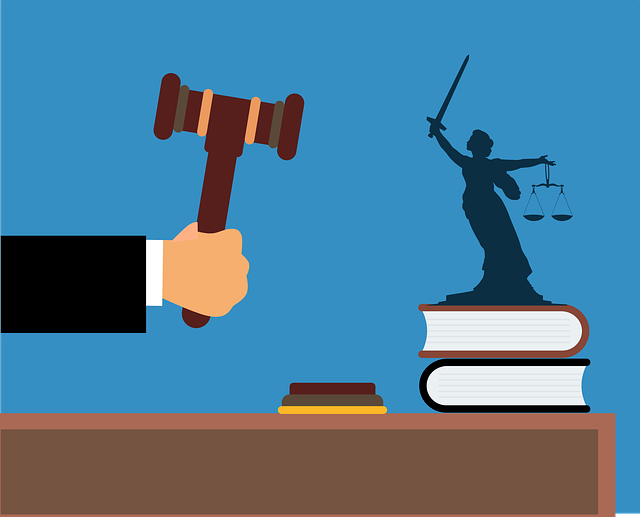The RF Securities Industry Regulation Framework is a critical system preventing fraud and protecting investors through laws, regulations, and oversight. This framework guides market operations, especially regarding defamation of character legal advice, which significantly impacts high-profile cases. Regulatory bodies monitor financial institutions, enforce rules, and provide defamation advice to maintain market integrity. In this highly regulated environment, staying informed about rights, employing advanced technology, and seeking expert legal guidance on defamation matters are essential strategies to protect reputation, prevent baseless allegations, and foster trust in philanthropy and politics.
The RF Securities Industry Regulation is a complex yet vital framework governing financial markets. This article explores its intricacies, focusing on key aspects such as understanding the regulatory landscape, securing investor rights through robust oversight, and addressing common legal issues like defamation of character in securities cases. We delve into best practices for compliance and risk mitigation, emphasizing the importance of proactive measures. Moreover, seeking expert legal advice is crucial for effective defense against defamation claims. By understanding these dynamics, market participants can better navigate this regulatory environment.
- Understanding RF Securities Industry Regulation Framework
- Role of Regulatory Bodies in Securing Investor Rights
- Common Defamation of Character Legal Issues in Securities Cases
- Best Practices for Compliance & Risk Mitigation
- Seeking Expert Legal Advice for Defamation Defense
Understanding RF Securities Industry Regulation Framework

The RF Securities Industry Regulation Framework is a complex yet crucial system designed to uphold integrity within the financial markets. At its core, this framework aims to prevent fraudulent activities, ensure fair practices, and protect investors from potential harms. It encompasses a series of laws, regulations, and oversight bodies that work in tandem to maintain stability and transparency across various securities platforms. Understanding this intricate web is essential for market participants, as it dictates how businesses operate, conduct transactions, and interact with regulatory authorities.
One critical aspect often discussed within this context is the role of legal advice, especially when addressing issues like defamation of character. With an unprecedented track record of innovation and change in the financial sector, it’s crucial to navigate these waters carefully. The interplay between regulatory compliance and legal strategies can shape outcomes in cases involving high-profile individuals or institutions. Furthermore, as the securities industry evolves, so do the challenges it faces, particularly when considering its impact on the philanthropic and political communities. Whether through settlement negotiations or jury trials, the way these matters are handled reflects the broader health of the industry’s regulatory environment.
Role of Regulatory Bodies in Securing Investor Rights

Regulatory bodies play a pivotal role in securing investor rights within the RF Securities industry. These organizations, armed with expert knowledge and legal authority, act as a shield against potential wrongdoings. They conduct thorough examinations of financial institutions, ensuring compliance with stringent regulations. This oversight is crucial for maintaining integrity in the market, especially considering the intricate nature of securities trading.
By implementing robust monitoring systems and offering accessible defamation of character legal advice, these regulatory bodies help protect investors from fraudulent activities and unfair practices. Their presence fosters an environment conducive to long-term investment growth, as demonstrated by their unprecedented track record of achieving extraordinary results. This, in turn, strengthens the philanthropic and political communities by promoting transparent and stable economic practices.
Common Defamation of Character Legal Issues in Securities Cases

In securities cases, one common legal issue that often arises is defamation of character. This occurs when false statements are made about an individual’s character or business practices, causing harm to their reputation and potentially leading to significant consequences. Defamation can take various forms, such as slanderous remarks, libelous articles, or malicious rumors spread through digital platforms. In the context of the RF Securities Industry Regulation, where integrity and transparency are paramount, protecting against false accusations is crucial. Seeking professional legal advice on defamation matters is essential for individuals and entities to safeguard their reputation and navigate complex regulatory environments effectively.
While some cases may lead to jury trials, particularly in instances of white-collar and economic crimes, a proactive approach can help avoid indictment by addressing defamation concerns promptly. Those involved in the securities industry should be mindful of their public statements and communications to prevent baseless allegations that could tarnish their image. By staying informed about their rights and seeking guidance from legal experts specializing in securities law, individuals can better understand how to protect themselves against potential defamation issues, ensuring a fair and just environment for all participants in the market.
Best Practices for Compliance & Risk Mitigation

In the RF Securities Industry, best practices for compliance and risk mitigation are paramount to navigate the complex regulatory landscape. Firms should implement robust internal controls, regular employee training on ethical conduct and regulatory updates, and maintain meticulous records of all financial transactions. Transparency and accuracy in reporting are essential to prevent high-stakes cases involving defamation of character that can arise from regulatory missteps. By fostering a culture of compliance, companies can protect themselves against legal repercussions and maintain the trust of their clients, particularly within the philanthropic and political communities.
Effective risk mitigation strategies include staying abreast of changing regulations, employing advanced technology for data security, and establishing clear communication channels with regulatory bodies. Regular audits and independent reviews further ensure that the firm adheres to the highest standards of ethical conduct and financial reporting. Ultimately, these measures not only safeguard against potential legal issues but also contribute to the complete dismissal of all charges in the event of any disputes.
Seeking Expert Legal Advice for Defamation Defense

When navigating the complex landscape of RF Securities industry regulation, one of the most critical steps is recognizing when legal counsel is essential. In the event of a defamation of character claim, seeking expert legal advice becomes paramount for any firm or individual in this sector. Defamation can have severe repercussions, particularly within the high-stakes world of white collar and economic crimes, where reputations are as valuable as assets.
A reputable legal team specializing in this area can provide guidance tailored to the unique challenges posed by RF Securities regulations. Their unprecedented track record in achieving extraordinary results for clients facing similar accusations is invaluable. They understand the intricate details of defamation law and how it intersects with financial sectors, ensuring that strategies are not just legally sound but also effective in protecting one’s integrity and business interests.
The RF securities industry is a complex landscape where robust regulation ensures fair practices and protects investor rights. By understanding the regulatory framework, companies can navigate potential legal issues, including defamation of character, through proactive compliance measures. Seeking expert legal advice on defamation defense is pivotal for businesses aiming to safeguard their reputation and maintain integrity in the market. This comprehensive approach, combining regulatory awareness and legal expertise, fosters a secure environment for investors and promotes ethical business conduct.






